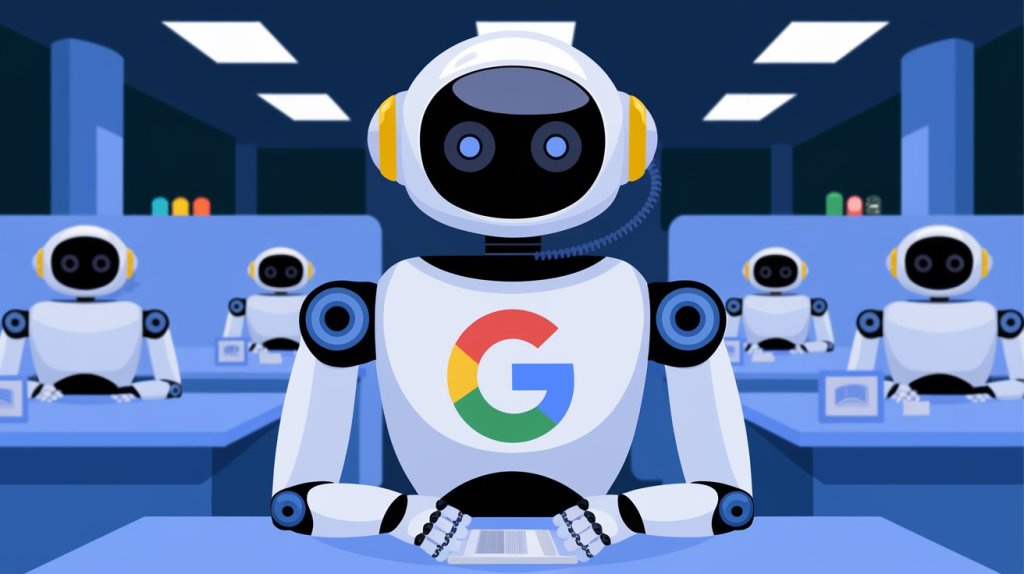Google supercharges enterprise contact centers with Gemini 1.5 Flash

Join our daily and weekly newsletters for the latest updates and exclusive content on industry-leading AI coverage. Learn More
Today, Google Cloud announced it is rebranding its six-year-old Contact Center AI offering as a new end-to-end application called Customer Engagement Suite with Google AI.
The move, which is another significant product rebrand from Google, has been made to reflect the integration of the company’s generative AI technologies – including the all-new Gemini 1.5 Flash – into the platform and provide enterprises with a more powerful experience for handling customer cases across different touchpoints.
This means enterprises using the application will now get advanced generative AI capabilities, including agentic AI to handle customer queries as well as smart replies, summaries and more to make customer care representatives more efficient at handling complex cases.
What does the new end-to-end application have on offer?
Google Cloud launched Contact Center AI in 2018 as a multichannel platform that integrated with CRMs and other data sources and provided customer care reps the ability to handle cases across different channels (across web, mobile, voice, email, apps). The offering included early-level AI and machine learning (ML) capabilities, including recommended responses (like those seen in Gboard), DialogFlow-based virtual agents for basic queries and transcription analysis for live insights and optimization.
Now, with this rebrand, Google Cloud is building on this work and adding features powered by its foundation models — while keeping the same omnichannel communication experience.
Firstly, the conversational agents offering of the platform, which created basic virtual agents, can now create more advanced hybrid agents, integrating prescriptive actions for predetermined questions as well as Gemini’s ability to address a broader range of topics. This way, a company can address customer questions with the best of both worlds — rule-based deterministic control and adaptive generative AI, grounded in the organization’s proprietary datasets.
“You can create and control virtual agent behavior with no code, making the product easy to use and configure for a wider range of employees. The hybrid virtual agents you create can reduce costs across customer operations by taking on a greater volume of inquiries to increase customer self-service and allow customer-care representatives to focus on more specialized calls,” Duncan Lennox, VP & GM of Applied AI at Google Cloud, wrote in a blog post.
In addition to improved virtual agents, Google Cloud has enhanced the Agent Assist offering to provide customer care reps with more Gemini-powered tools to address queries faster and with high levels of accuracy.
This includes generative knowledge assist to suggest search queries based on the context of the ongoing conversation; a coaching model that can be grounded in proprietary information to generate real-time step-by-step guidance for representatives; and enhanced smart replies, automatic call summarization and live bi-directional translation for chats, covering over 100 languages.
Notably Agent Assist will also tap Gemini 1.5 Flash’s multimodal capabilities to help agents instantly generate media to handle customer queries. This can come particularly handy in cases of tech support, where the agent has to give step-by-step instructions to the customer.
By enhancing Contact Center AI with Gemini smarts, Google Cloud hopes enterprises will be able to orchestrate a consistent customer experience and better address queries across all touchpoints. The company currently supports customer service agents of dozens of large enterprises, including Verizon, Marks & Spencer, EasyJet, Telus and the State of Illinois
However, it is worth noting that the Sundar Pichai-led company is not the only one exploring the power of AI in the contact center. Multiple conglomerates and startups are exploring the space in their own ways, including AWS (with its Q assistant), Thoughtly, Observe AI and Sierra.
According to Gartner, by 2025, 80% of customer service and support teams will be applying generative AI in some form to improve agent productivity and customer experiences.




Comments are closed, but trackbacks and pingbacks are open.